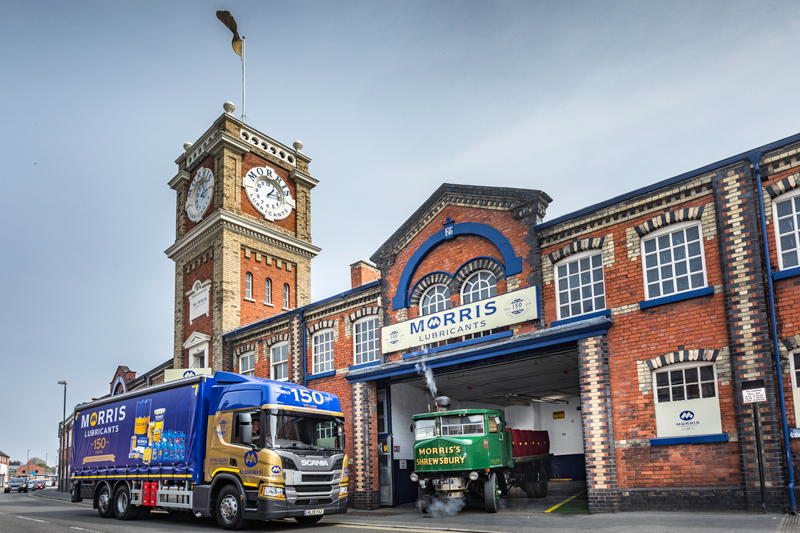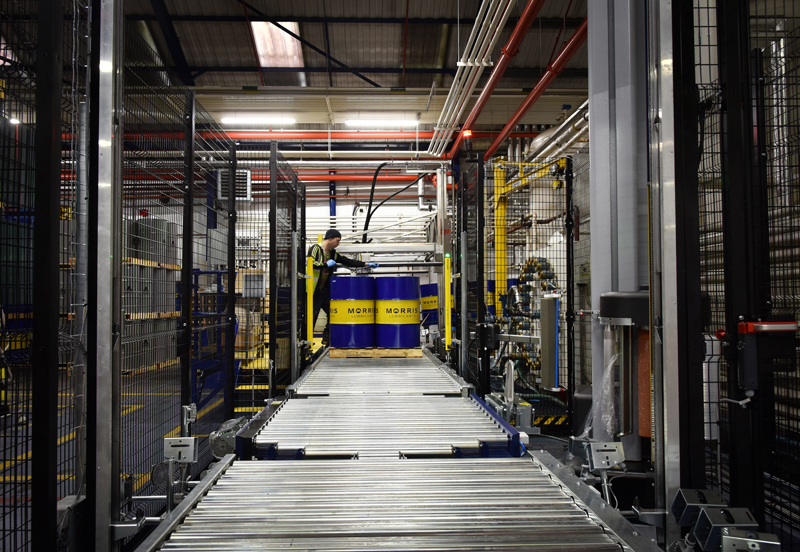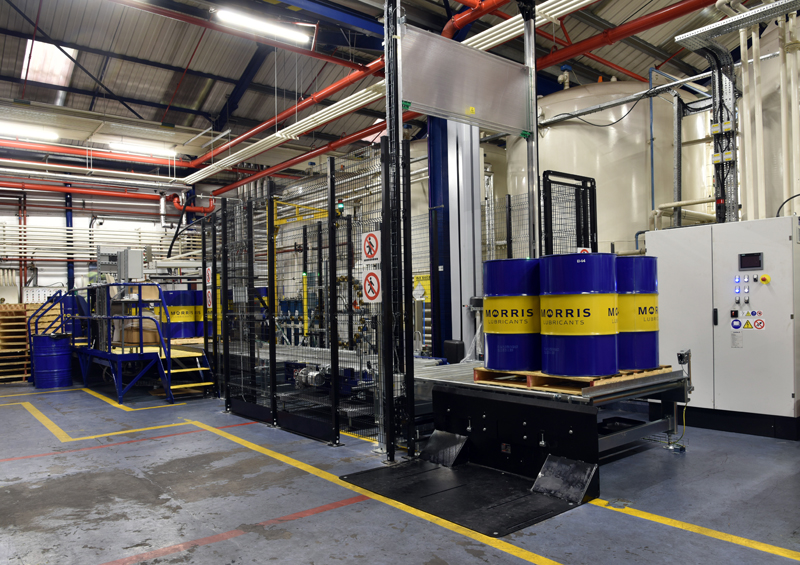
Morris Lubricants celebrated its 150th anniversary throughout 2019. To recognise such a momentous milestone, the company made a number of sizeable investments to further enhance its customers’ experience. PMM finds out more.
The first of these anniversary investments saw the Shrewsbury-based lubricants manufacturer invest in a new delivery fleet comprising a new lorry and a pair of double-decker delivery trailers.
The tractor unit and trailers now make deliveries up to three times a day to a distribution hub in the Midlands, from which Morris Lubricants’ products are distributed to customers nationwide. These new additions are to supplement its own fleet of DAF and Scania lorries to make specialist bulk load and hazardous product deliveries and collections from customers across the UK.
Graham Fewtrell, Morris Lubricants’ Transport Manager, explained that, in the past, customers could wait for up to six days for their orders to be delivered when the company had its own fleet of 12 vehicles servicing England, Wales and Scotland.
In an age of next-day deliveries in the retail sector, the company decided to boost the delivery of its lubricant products to meet evolving customer expectations.
The faster delivery service means that products spend far less time sitting on shelves waiting for despatch from the company’s Shrewsbury works, making the production and delivery process much more efficient.
“The new delivery service was introduced in August, and the highest number of pallets we have delivered to the hub in a month is 2,694 in October,” revealed Graham. “We are delivering an average of 100 pallets daily, which has definitely improved customer service and efficiency within the business.
“Whereas in the past our drivers were delivering two loads per week, they are now delivering loads in the double-decker trailers to the hub up to three times a day, five days a week, between 6am and 6pm. This way, we can guarantee that all orders will be delivered within 24 to 48 hours.”

Morris Lubricants’ Managing Director, Chris Slezakowski, said, “It’s very challenging to service all parts of the UK with a limited number of vehicles. That’s why we have called on the services of third-party hauliers who have at their disposal thousands of lorries to carry our deliveries to wherever they need to be.
“We have also changed what our own fleet does. Our drivers now deliver bulk loads and hazardous products, make collections and cater to specialist orders that require particular attention.”
Stock reshuffle
A new stocking policy has also significantly increased availability of products off the shelf. Until fairly recently, Morris Lubricants operated a ‘pull’ production system which responded to customer orders as the first priority.
“Whilst this is an effective way to respond to demand, it can sometimes place strain on manufacturing, particularly during busy periods, which may result in stock imbalance,” explained Mr Slezakowski.
“With around 3,000 stock keeping units (SKUs) available from our catalogue, we have a wide range of products to make to meet customer demand and it is not efficient to keep swapping from one product to another primarily because of incoming orders.
“What we decided to do is to hold stock of products based on their demand frequency and produce stock according to a forecast. Whilst this is not a new concept, what is new is the way in which we categorise SKUs and the frequency with which we review the forecast. By combining market trends and seasonal demands, we are able to set production plans further into the future, and we have adjusted stock holding to suit.
“There is a 92% probability that if you place an order with us, we will have that product in stock and, if it is not in stock, we will typically take no longer than 10 days to make it. With the exception of a few highly specialised products, such as those with a limited shelf life or those that require temperature-controlled processing, we now offer a better delivery service across a wider range of products.
“To improve efficiency, we have the benefit of our own fleet plus third party hauliers, and this transport system is working beautifully. Coupled with our new stocking policy, we are now more able than ever to meet customer demand. Further investments are underway to take us to an even higher level of service.
“When added to our reputation for quality and innovation, we believe that we offer our customers outstanding value in today’s market.”
Moving towards automation
Morris Lubricants has also made a significant investment in a bulk filling line at its factory in Shrewsbury. The installation of the new, digitally controlled line began on 1st November of last year and became fully operational just 17 days later.
The installation, which also includes a pallet wrapping machine, ran smoothly, which meant that the company fulfilled all orders throughout the process. Six contractors helped the company’s maintenance team on the project, which was designed and managed by Steve Reading, Group Engineering Manager.

“The new, semi-automated system has increased flexibility in transferring product within the oil works to our filling lines, and has bolstered the container filling speed,” said Steve. The new system transfers 20,000L of oil an hour to the filling line, where nine IVCs are filled in an hour compared to four-and- a-half on the previous line. The new line fills barrels from 20 to 205L at 1,000L every three minutes.
Managing Director Chris Slezakowski provided further insight: “The largest volume of product that we ship is either in tankers, delivery tanks or barrels. It accounts for 40% of our volume.
“Our previous bulk filling line had been manually operated for many years, so we invested to introduce a faster, better controlled and lower energy line that is more easily managed.
“We can now control the pumps more accurately, and the filling speed of 5L per second is double that of the previous line. We can fill a tanker in about 20 minutes when that used to take us an hour.
“We can also measure exactly what has gone into the tanks or barrels with a high degree of accuracy, and power consumption has reduced by 50%.
“The installation was well planned and executed, and we have managed to improve a significant part of our production The new filling line gives us better control, better traceability, better record keeping and faster sample inspection.
“We are able to meet customer demand with speed and increased efficiency, which improves productivity, saves times and gives us an edge over our competitors.”









